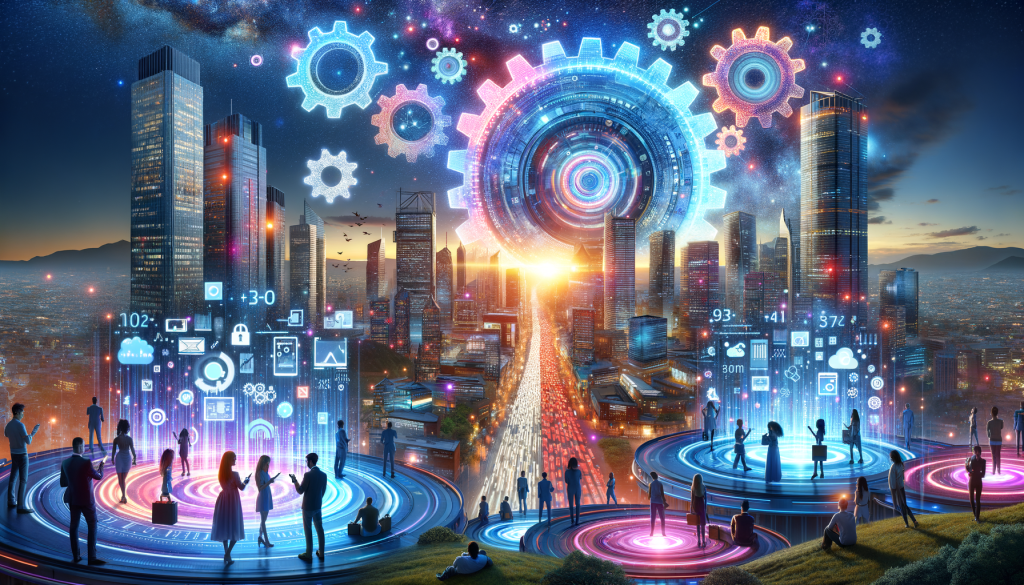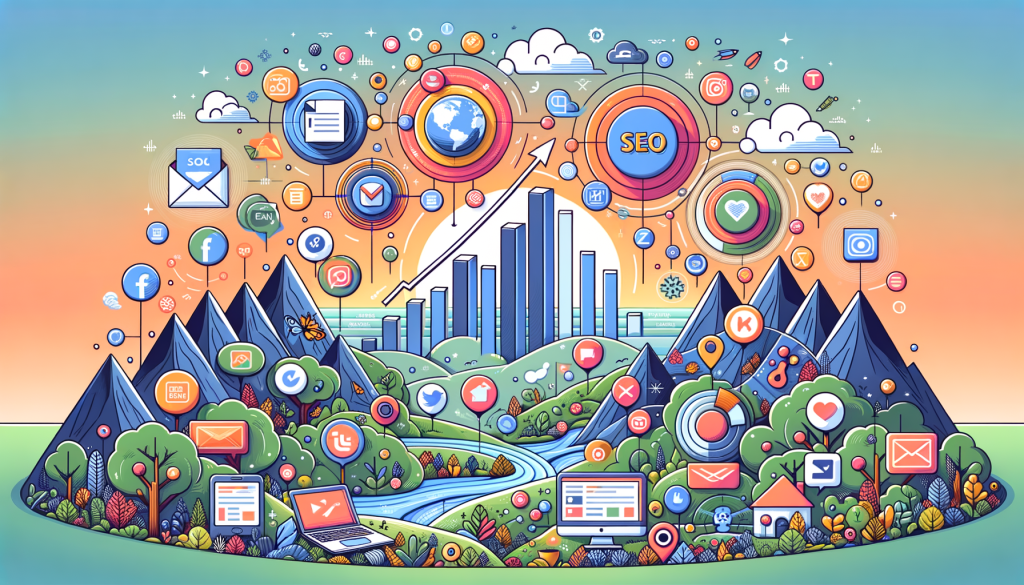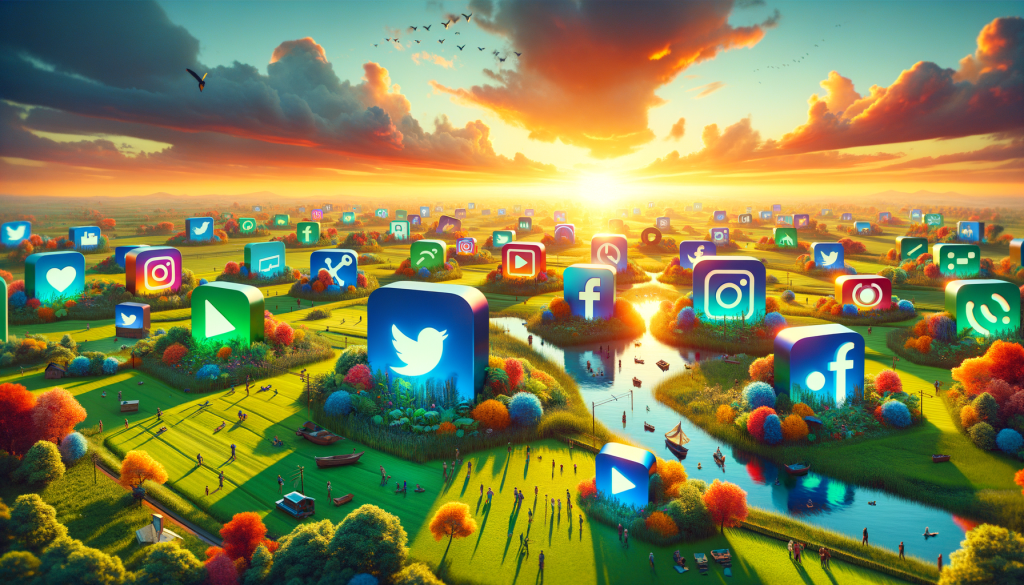Revolutionizing Marketing Strategies with Automation
The use of automation in marketing strategies has revolutionized the way businesses communicate with their customers. By leveraging technology and data-driven insights, companies are able to streamline their marketing efforts, improve efficiency, and deliver personalized experiences to their target audience.
One of the key benefits of marketing automation is its ability to automate repetitive tasks, such as email campaigns, social media posting, and lead nurturing. By automating these processes, marketers can save time and resources, allowing them to focus on more strategic initiatives. Additionally, automation enables marketers to deliver timely and relevant messages to their customers, based on their behavior, preferences, and interactions with the brand.
Another advantage of marketing automation is its ability to track and measure the effectiveness of marketing campaigns. Through analytics and reporting, marketers can gain valuable insights into customer behavior, campaign performance, and ROI. This data-driven approach allows companies to make informed decisions and optimize their marketing strategies for better results.
Furthermore, marketing automation facilitates seamless integration between different marketing channels. Whether it’s email, social media, content marketing, or lead generation, automation tools allow marketers to create cohesive and consistent campaigns across multiple channels. This omni-channel approach ensures that the brand message is delivered consistently, regardless of the platform or device used by the customer.
In conclusion, marketing automation is revolutionizing the way businesses approach their marketing strategies. By automating repetitive tasks, leveraging data-driven insights, and integrating various marketing channels, companies can enhance their efficiency, deliver personalized experiences, and achieve better results. As technology continues to advance, the future of marketing automation looks promising, with even more innovative solutions and capabilities on the horizon.
The Role of Artificial Intelligence in Marketing Automation
Artificial Intelligence (AI) plays a crucial role in the future of marketing automation. With its ability to analyze vast amounts of data and make intelligent decisions, AI is revolutionizing the way marketers automate their processes and interact with customers.
One of the key benefits of AI in marketing automation is its ability to personalize and tailor customer experiences. AI algorithms can analyze customer data, such as browsing behavior, purchase history, and demographics, to deliver personalized content and recommendations. This level of personalization helps marketers create more targeted and relevant campaigns, leading to higher customer engagement and conversion rates.
AI-powered chatbots are another important aspect of marketing automation. These chatbots can interact with customers in real-time, answering their questions, providing product recommendations, and even completing transactions. By automating customer interactions, AI-powered chatbots free up valuable time for marketers, allowing them to focus on more strategic tasks.
Furthermore, AI can also optimize marketing campaigns by continuously analyzing data and making data-driven decisions. AI algorithms can identify patterns and trends in consumer behavior, helping marketers understand which campaigns are most effective and which ones need adjustments. This data-driven approach enables marketers to make more informed decisions, resulting in better campaign performance and ROI.
- Personalization: AI can analyze customer data to deliver personalized content and recommendations.
- Chatbots: AI-powered chatbots can interact with customers, answering questions and providing recommendations.
- Campaign Optimization: AI algorithms can analyze data to identify patterns and optimize marketing campaigns.
In conclusion, AI is revolutionizing marketing automation by enabling personalization, automating customer interactions, and optimizing campaigns. As AI continues to evolve, marketers can expect even greater advancements in the future, leading to more efficient and effective marketing automation strategies.
Enhancing Customer Experience through Automated Marketing
Automated marketing has revolutionized the way businesses interact with their customers, allowing for a more personalized and seamless experience. By leveraging technology and data, companies can now automate various marketing processes, enhancing the overall customer experience.
One of the key benefits of automated marketing is the ability to deliver highly targeted and relevant content to customers. Through the use of customer segmentation and profiling, businesses can create personalized messages that resonate with individual preferences and needs. This level of customization not only improves customer satisfaction but also increases the likelihood of conversions and sales.
Automated marketing also enables businesses to engage with customers at the right time and through the right channels. By analyzing customer behavior and interaction patterns, companies can identify the most effective touchpoints to deliver their messages. Whether it’s through email, social media, or mobile notifications, automated marketing ensures that customers receive communications when they are most likely to engage and respond.
Furthermore, automated marketing provides businesses with the opportunity to nurture customer relationships at scale. Through automated workflows and drip campaigns, companies can send relevant and timely communications to customers at various stages of the customer journey. This helps to build trust, loyalty, and long-term relationships, ultimately leading to repeat business and brand advocacy.
Overall, automated marketing is a powerful tool for enhancing the customer experience. By leveraging technology and data, businesses can deliver personalized content, engage customers at the right time, and nurture relationships at scale. As the future of marketing automation continues to evolve, businesses that embrace these strategies will undoubtedly stay ahead in an increasingly competitive marketplace.
Unlocking the Potential of Data-driven Marketing Automation
Unlocking the Potential of Data-driven Marketing Automation
Data-driven marketing automation has emerged as a game-changer in the rapidly evolving field of marketing. By harnessing the power of data, businesses can now streamline their marketing efforts, personalize customer interactions, and drive revenue growth like never before.
Here are some key ways in which data-driven marketing automation is transforming the future of marketing:
- Enhanced Customer Insights: With data-driven marketing automation, businesses can gain valuable insights into their customers’ preferences, behaviors, and needs. By analyzing data from various sources like website analytics, social media interactions, and purchase history, businesses can create detailed customer profiles and deliver personalized experiences.
- Targeted and Personalized Campaigns: Data-driven marketing automation enables businesses to create targeted and personalized campaigns based on customer segmentation and behavior analysis. By delivering the right message to the right audience at the right time, businesses can significantly improve conversion rates and drive customer engagement.
- Improved Lead Generation and Nurturing: By leveraging data-driven marketing automation, businesses can optimize their lead generation and nurturing processes. By tracking and analyzing customer interactions, businesses can identify high-potential leads and deliver tailored content to nurture them through the sales funnel.
- Optimized Marketing ROI: Data-driven marketing automation allows businesses to measure and track the effectiveness of their marketing efforts in real-time. By analyzing key metrics like click-through rates, conversion rates, and customer lifetime value, businesses can make data-backed decisions to optimize their marketing strategies and maximize return on investment.
In conclusion, data-driven marketing automation holds immense potential for businesses to revolutionize their marketing efforts. By harnessing the power of data, businesses can unlock new levels of efficiency, personalization, and revenue growth in the ever-evolving marketing landscape.
The Integration of Machine Learning in Marketing Automation
Machine learning is revolutionizing the field of marketing automation, providing marketers with powerful tools to enhance their strategies and drive better results. By leveraging the capabilities of machine learning algorithms, marketers can gain valuable insights into customer behavior, predict trends, and optimize their campaigns for maximum effectiveness.
One of the key benefits of integrating machine learning into marketing automation is the ability to personalize customer experiences at scale. Machine learning algorithms can analyze vast amounts of data, including customer demographics, past purchase history, and online behavior, to create highly targeted and customized marketing messages. This enables marketers to deliver the right message to the right customer at the right time, increasing engagement and conversion rates.
Another advantage of machine learning in marketing automation is its ability to automate repetitive tasks and streamline processes. Machine learning algorithms can analyze data and make automated decisions, freeing up marketers to focus on higher-level strategic activities. This not only saves time and resources but also allows marketers to make data-driven decisions based on accurate and up-to-date insights.
Furthermore, machine learning can help marketers optimize their campaigns by continuously analyzing and adapting to customer behavior. By monitoring and analyzing customer interactions, machine learning algorithms can identify patterns and trends, allowing marketers to make proactive adjustments to their campaigns in real-time. This level of agility and responsiveness can significantly improve campaign performance and ROI.
In conclusion, the integration of machine learning in marketing automation offers immense potential for marketers to enhance their strategies and achieve better results. By leveraging the power of machine learning algorithms, marketers can personalize customer experiences, automate repetitive tasks, and optimize their campaigns for maximum effectiveness. As machine learning continues to advance, it will undoubtedly play a pivotal role in shaping the future of marketing automation.
Challenges and Opportunities in the Future of Marketing Automation
As marketing automation continues to evolve, it presents both challenges and opportunities for businesses. The future of marketing automation holds immense potential for streamlining marketing processes and driving efficiency. However, it also brings certain challenges that businesses need to address to fully leverage its benefits.
Challenges:
- Complexity: Marketing automation platforms are becoming increasingly complex, requiring businesses to invest in training and resources to effectively utilize their capabilities.
- Data management: With the abundance of data generated by marketing automation, businesses need to have robust systems in place to collect, analyze, and interpret the data effectively.
- Integration: Integrating marketing automation with existing systems and processes can be challenging, requiring businesses to ensure seamless integration for smooth operations.
- Personalization: While marketing automation enables personalized marketing campaigns, businesses need to overcome the challenge of tailoring messages to individual customers while maintaining a human touch.
- Privacy and data security: The increased use of customer data in marketing automation raises concerns about privacy and data security. Businesses must prioritize data protection and comply with relevant regulations.
Opportunities:
- Efficiency: Marketing automation allows businesses to automate repetitive tasks, saving time and resources. It enables marketers to focus on strategy and creativity.
- Targeted marketing: With advanced segmentation and personalization capabilities, marketing automation enables businesses to deliver highly targeted and relevant messages to their audience, improving conversion rates.
- Lead nurturing: Marketing automation helps businesses nurture leads throughout the customer journey, providing timely and personalized content to move prospects closer to making a purchase.
- Improved analytics: By tracking and analyzing customer behavior, marketing automation provides valuable insights that can guide businesses in making data-driven decisions and optimizing marketing strategies.
- Scalability: Marketing automation systems can easily scale as businesses grow, accommodating increased volumes of data and expanding marketing efforts.
In conclusion, the future of marketing automation holds both challenges and opportunities for businesses. By overcoming the challenges and leveraging the opportunities, businesses can enhance their marketing efforts, drive efficiency, and deliver personalized experiences to their audience.






I’ve been using marketing automation for my small business for a while now, and it’s been a game-changer. It has saved me so much time and allowed me to focus on more strategic aspects of my business. I’m excited to see how it continues to evolve in the future.
I’m curious about the ethical implications of marketing automation in the future. As technology advances, how do we ensure that it’s used responsibly and respects consumer privacy? It’s an important aspect to consider as the industry evolves.
I work for a large corporation, and we’ve recently implemented marketing automation. The results have been impressive in terms of lead generation and customer engagement. I’m interested to learn more about the latest trends and innovations in this field.
I believe that personalized and targeted marketing is the future, and automation plays a crucial role in achieving that. I’d love to hear more about the integration of AI and machine learning in marketing automation and how it’s reshaping the industry.